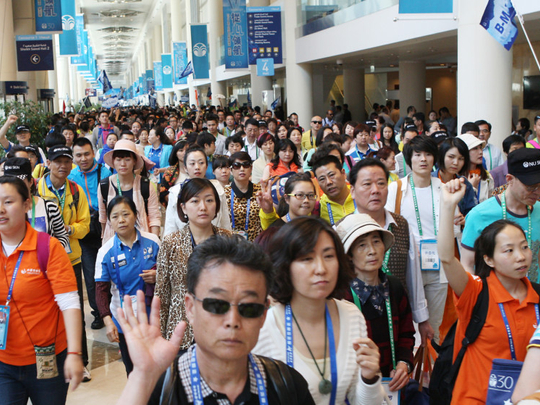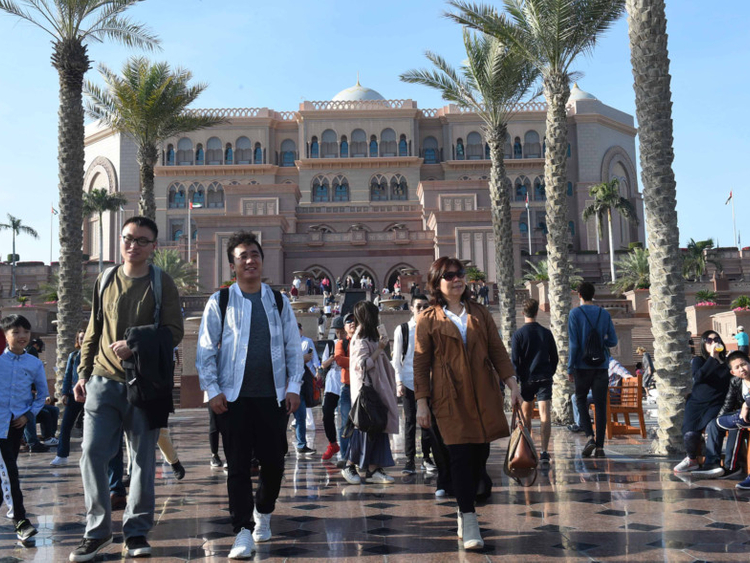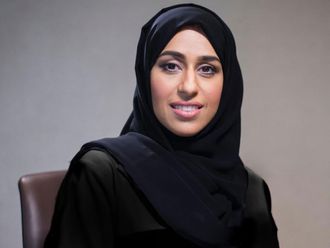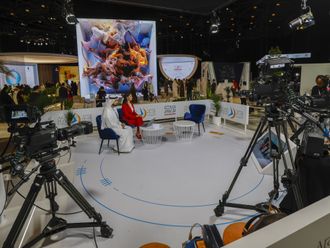
Abu Dhabi: The UAE and China — the world’s most populous nation with the second largest economy — enjoy a strategic relationship and a deep-rooted friendship.
For almost five decades, relations between the two countries as well as economic cooperation and trade have been soaring, with more room for development in the coming years.
Just one day after the creation of the UAE and independence from Britain, on December 3, 1971, Shaikh Zayed Bin Sultan Al Nahyan, the Founding President of the UAE, informed Zhou Enlai, then the Chinese premier, of the independence of the UAE and received word from China recognising the UAE’s independence on that day as a new nation.
Since then, the two countries have never looked back on a growing friendship that was formalised on November 1, 1984, when both countries agreed to open official diplomatic relations.
By then, trade between the two countries was already well established, with exports from China tripling in the first 10 years of the UAE’s existence, while the UAE became an important supplier of fertiliser to China and Sharjah became a key stopover for Chinese airlines flying to Europe. It is in the genes of the two peoples thanks to the early Muslim merchants and Ming Dynasty explorations of Zheng He, who established the Maritime Silk Road connecting China with Arabia and Africa centuries ago.
Five years later, in December 1989, Yang Shangkun, then China’s president, paid the first ever visit to the UAE by a Chinese head of state and, in May 1990, Shaikh Zayed reciprocated with a state visit to China.
In May 2008, the UAE Government made a generous donation of more than $50 million to China after the earthquake in Wenchuan, making it one of the world’s biggest donors to disaster-stricken areas in China. The Chinese people still have a fresh memory of that generosity.
flights operate each week between China and the UAE
In January 2012, Chinese premier Wen Jiabao attended the Fifth World Future Energy Summit in the UAE and signed a joint declaration on establishing a strategic partnership between the two countries.
In 2009, 2012 and 2015, His Highness Shaikh Mohammad Bin Zayed Al Nahyan, Crown Prince of Abu Dhabi and Deputy Supreme Commander of the UAE Armed Forces, visited China at the invitation of President Xi Jinping. These visits have been extremely fruitful in advancing cooperation in areas such as energy, economy, trade, culture and education.
Chinese business establishments operate in the UAE
Over the last 34 years, bilateral political relations have become increasingly mature with fruitful cooperation in all fields and profound friendship among the two peoples.
In the international arena, the UAE and China have had partnership with the Gulf Cooperation Council, Arab League and the United Nations. The UAE has stood side by side with the Chinese people on issues relevant to the interests of China, while China is supportive of the UAE in its efforts to safeguard national sovereignty and choose its own way of development.
Moreover, the two countries have become friends and partners of mutual trust in safeguarding the interests of developing countries and regional peace and stability.
common investment fund set up by two countries in 2012
Two-way trade between the two countries was pegged at roughly $53 billion (Dh194.64 billion) in 2017.
For many years, the UAE has been China’s second largest trading partner and the biggest export market in the Middle East and Northern African Region. Also, the UAE is an important trading hub for Chinese products. “Made-in-China” has entered into the everyday life of the UAE people.
The UAE views China as an important emerging investment market, while Chinese investors are optimistic about the potential of the UAE market. There are more than 4,000 Chinese companies now in the UAE with an investment stock of $1.66 billion. China’s investment in the UAE touches many areas: such as energy, telecommunications, transport, real estate, trade, finance, securities and services. Chinese investors include both powerful state-owned and self-employed enterprises.
The Dragon Mart in Dubai is the biggest Chinese market overseas, with the most shops and products and the most advanced business network. Also, it is the biggest trading hub of Chinese products in the Middle East. The owners of the more than 4,000 shops in the Dragon Mart are representatives of China’s self-employed enterprises, as evidenced by the fact that they work hard to provide daily necessities for very little return, thus making important contributions to people’s lives.
volume of two-way trade between two countries last year
Energy cooperation has been a success and not merely oil trade, but comprehensive upstream and downstream cooperation with mutual benefit.
Financial cooperation is also a shining point in bilateral relations. The four biggest banks of China have all set up branches in the UAE. Abu Dhabi National Bank and Dubai National Bank have set up branches or started business in Shanghai. During his 2012 visit to China, Shaikh Mohammad Bin Zayed initiated the setting up of a common investment fund of $10 billion between the two countries. The UAE also joined the Asian Infrastructure Investment Bank, initiated by China, as a founding member.
At present, more than 200,000 Chinese — the largest Chinese community in the Middle East — are calling UAE home. Scattered across every sector of social life, they work hard and make contributions to people-to-people exchanges as well as the economic growth of the UAE.
Tourism exchanges are also on the increase. The UAE was listed as a tourist destination for the Chinese in 2009. Thanks to the development of civil aviation, diverse tourism resources and excellent services provided by the UAE, more and more Chinese people have been visiting Abu Dhabi and Dubai.
Currently, there are around 150 flights each week between China and the UAE. More than a million Chinese tourists visited the UAE in 2017, up from 600,000 in 2016. The UAE is also enlarging investment in tourism, hotel and retail sectors in China. Many hotels and shopping malls in the UAE hold activities with Chinese themes when the traditional holidays arrive.
Exchanges between Chinese and Islamic civilisations have been conducive to increasing prosperity for both sides. Recent years have witnessed frequent exchanges between China and the UAE, as evidenced by the fact that Chinese artists, martial arts groups, acrobats and theatre troupes come to the UAE to perform and Emirati artists have been to China for gaining new insights about that culture.
Young students from the UAE visited China as youth ambassadors for three consecutive years under the sponsorship of the Crown Prince’s Court. More and more Chinese students have come to the UAE for education. As a result, Masdar Institute, the Petroleum Institute, New York University Abu Dhabi and the American University of Sharjah are becoming more popular in China.
There are an estimated 4,000 Chinese businesses in the UAE, many linked to Dragon Mart, one of the largest markets of Chinese products outside of China, and the largest in the region.
Cooperation between the two countries is overseen by a joint committee, tasked with expanding cooperation in financial, banking, industrial, agricultural, investment training and information fields. The UAE has joined the Asian Infrastructure Investment Bank as a founding member. The bank’s regional headquarters is based in Abu Dhabi.
Other prominent domains of cooperation include space, oil storage in China, as well as agreements on oil and gas, nuclear energy, railways, infrastructure, currency exchange, aerospace technology and advanced technology.
The two countries are joining forces to advance the Belt and Road Initiative and create a community with a shared future for mankind.













